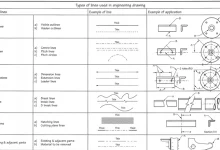Creating an effective study schedule is essential for academic success, especially when balancing multiple subjects and activities. A well-structured study schedule helps in managing time efficiently, reduces stress, and enhances productivity. This article will guide you through the process of creating a study schedule that suits your personal needs and preferences.
Understanding the Importance of a Study Schedule
A study schedule serves as a roadmap for your educational journey. It ensures that you allocate adequate time to each subject, helping you to cover all necessary materials systematically. This organized approach prevents last-minute cramming and promotes a deeper understanding of the subjects. Additionally, a study schedule can help in maintaining a balance between academics and extracurricular activities, ensuring a well-rounded development.
Assessing Your Current Situation
Before creating a study schedule, it is crucial to assess your current situation. Start by listing all your subjects and the amount of time you need to dedicate to each. Consider the following factors:
- Academic Goals: Define your short-term and long-term academic goals. These goals will help you prioritize subjects and topics.
- Strengths and Weaknesses: Identify the subjects you excel in and those you find challenging. Allocate more time to subjects that require extra effort.
- Extracurricular Activities: Include time for sports, hobbies, and social activities. A balanced schedule prevents burnout and keeps you motivated.
- Daily Routine: Take into account your daily routine, including school hours, commute time, meals, and sleep. Ensure your schedule is realistic and sustainable.
Setting Up Your Study Schedule
Once you have a clear understanding of your needs, follow these steps to create an effective study schedule:
1. Create a Master Calendar
A master calendar provides a bird’s eye view of your entire study plan. Use a monthly or weekly planner, a digital calendar, or a dedicated app. Mark important dates such as exams, project deadlines, and school events. This overview will help you allocate your study sessions more effectively.
2. Break Down Your Tasks
Divide your study materials into manageable chunks. Break down larger topics into smaller, more specific tasks. This approach makes studying less overwhelming and allows for better focus. For example, instead of scheduling “Study Biology,” break it down into “Read Chapter 5: Photosynthesis” and “Review Notes on Cellular Respiration.”
3. Allocate Time Blocks
Time blocking is a technique where you allocate specific time periods for different tasks. Determine the best times for studying based on your energy levels and daily routine. Allocate longer blocks for intensive study sessions and shorter blocks for review and practice. Ensure you include regular breaks to avoid fatigue.
4. Prioritize Tasks
Prioritize your tasks based on urgency and importance. Use the Eisenhower Matrix, which categorizes tasks into four quadrants: urgent and important, important but not urgent, urgent but not important, and neither urgent nor important. Focus on tasks that fall into the first two categories.
5. Be Flexible
While it is essential to stick to your schedule, allow some flexibility for unforeseen events or changes. Life can be unpredictable, and your schedule should accommodate occasional adjustments without causing stress.
6. Review and Adjust
Regularly review your study schedule to assess its effectiveness. Make adjustments as needed based on your progress and any changes in your academic or personal life. A dynamic schedule that evolves with your needs will be more effective in the long run.
Tips for Maintaining Your Study Schedule
Creating a study schedule is only the first step; maintaining it requires discipline and motivation. Here are some tips to help you stay on track:
- Set Clear Goals: Define what you aim to achieve in each study session. Clear goals provide direction and keep you focused.
- Eliminate Distractions: Create a conducive study environment by eliminating distractions such as mobile phones, social media, and noisy surroundings.
- Stay Consistent: Consistency is key to forming good study habits. Stick to your schedule as much as possible, even on days when you feel less motivated.
- Use Study Techniques: Employ effective study techniques such as active learning, spaced repetition, and the Pomodoro Technique to enhance your productivity.
- Seek Support: If you find it challenging to stick to your schedule, seek support from friends, family, or study groups. Accountability can significantly boost your commitment.
- Reward Yourself: Reward yourself for meeting your study goals. Small rewards can provide motivation and make studying more enjoyable.
Sample Study Schedule
Here is a sample study schedule to give you an idea of how to structure your time:
Weekdays:
- 6:00 AM – 7:00 AM: Exercise/Breakfast
- 7:00 AM – 8:00 AM: Review Notes/Assignments
- 8:00 AM – 3:00 PM: School
- 3:00 PM – 4:00 PM: Break/Snack
- 4:00 PM – 6:00 PM: Homework/Study Session 1
- 6:00 PM – 7:00 PM: Dinner/Relaxation
- 7:00 PM – 9:00 PM: Study Session 2/Review
- 9:00 PM – 10:00 PM: Leisure Time/Prepare for Bed
Weekends:
- 8:00 AM – 9:00 AM: Exercise/Breakfast
- 9:00 AM – 12:00 PM: Study Session 1 (Focused Study)
- 12:00 PM – 1:00 PM: Lunch/Break
- 1:00 PM – 3:00 PM: Study Session 2/Group Study
- 3:00 PM – 5:00 PM: Extracurricular Activities/Hobbies
- 5:00 PM – 6:00 PM: Review/Assignments
- 6:00 PM – 7:00 PM: Dinner/Relaxation
- 7:00 PM – 9:00 PM: Leisure Time/Family Time
Conclusion
Creating and maintaining an effective study schedule requires careful planning, self-discipline, and regular adjustments. By understanding your needs, setting clear goals, and staying committed, you can enhance your academic performance and reduce stress. Remember that a study schedule is a tool to help you succeed; it should be flexible enough to accommodate your personal and academic growth. With a well-structured schedule, you can achieve a balanced and productive study routine that supports your overall well-being and academic success.

